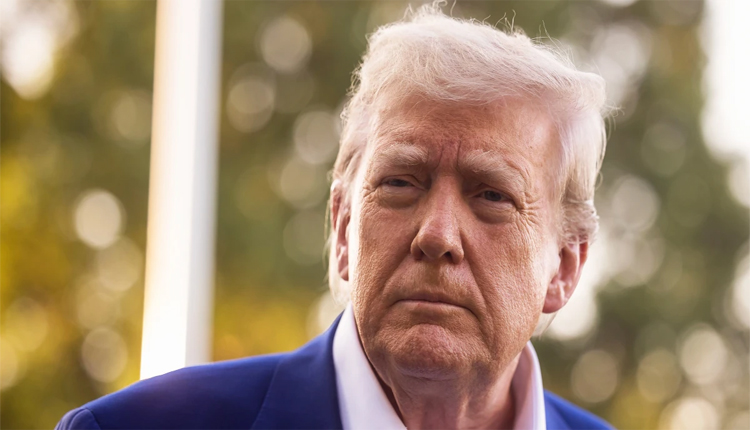Washington: US president Donald Trump has made a sharp warning to Japan, threatening to take a tariff on its imports with a margin of up to 35 per cent unless a deal on trade relations is agreed to by July 9. The development, which was announced on Air Force One on Tuesday, is a result of disappointment by Trump over what he terms the unfair trade practices of Japan, especially its refusal to import American rice and its command over the auto trade. The deadline is fast approaching, and the move has resulted in concerns of a trade war, which can spread over the Japanese economy and beyond.
An Emergent Trade Tug-Of-War
The new attack by Trump is aimed at Japan, which is a major US ally, as part of his effort to ensure that America cuts its trade deficits. He even accused Japan of enjoying a privileged and uneven trade relationship. It is written on Trump that they are not going to get our rice, and they have a huge rice shortage, according to the social platform Truth, alleging that the trade policy of Japan is very unfair to the American people. He was also referring to the automobile industry, noting that Japanese cars flood the US market, while American vehicles require more time to gain a foothold in Japan.
The President has made the comments following a 90-day reprieve on higher tariffs, which was implemented as part of his policy, known as Liberation Day, announced on April 2. Initially, such a policy imposed a tariff rate of 24 per cent on Japanese goods, but it was later reduced to 10 per cent to facilitate negotiations. There is also a 25 per cent tax on cars and components and a 50 percent tax on aluminium and steel imported from Japan. The proposal to increase the tariffs to 30-35 per cent reflects Trump’s firm stance, and the likelihood of reaching an agreement appears low. I am not so sure that we are going to strike a deal. I do not believe it,” he said to the reporters.
Japanese Economy is Ready to Take a Hit
The menace has been a shock to Japan, which has been struggling with inflation and a weakening yen in its economy. Prime Minister Shigeru Ishiba has described the case as a national emergency, referring to the possibility that increased tariffs would crush an industry such as the automotive one, which is almost 10 per cent of Japanese GDP and directly employs 8 per cent of its population. Toyota, Honda, and Nissan are facing billions of dollars in profit losses, with Nissan even considering plant shutdowns.
The Japanese Chief cabinet secretary responded tactfully and was not ready to compromise at the expense of local farmers. The deputy secretary, Kazuhiko Aoki, dodged Trump on his rice claims and was rebuffed by stating, We do not comment on all the comments made by the US officials. Statistics, however, indicate that Japan imported an amount of $298 million of US rice in the previous year, which disproves the story presented by Trump.
A serious Negotiation
Behind the rhetoric used by Trump is a high-pressure tactic of making concessions. According to analysts, Trump’s threats are partly tactical and intended to persuade Japan to open up its markets. Former US diplomat Kurt Tong said Trump will use brinkmanship to build leverage. However, there is miscalculation danger. Tokyo, on the other hand, is pushed to pursue economic interests with its strategic partnership with Washington, one of its security partners in a region prone to instabilities.
A trade envoy of Japan, Ryosei Akazawa, has said there has been some progress made following the recent negotiations, but they have not yielded a breakthrough. Ishiba faced domestic criticism for his cautious policy just before the elections, as opposition parties demanded a more aggressive approach. The failure to strike a deal may lead to the Nikkei 225 decreasing by more than 4 per cent, analysts warn, and a delay of a rate in the Bank of Japan may lead to further weakening of the yen.
Global Implications
The tariffs introduced by Trump are among other protectionist policies that have already interfered with world trade. The tariffs imposed by the US on Chinese imports have increased to 145 percent as of April 2019, as opposed to the 50 percent imposed on steel and aluminium by other countries globally. The International Monetary Fund has reduced its projections for the growth rates of G7 countries, such as Japan, due to trade tensions. American buyers might face an increase in the price of cars and other products in case of increased tariffs, which will worsen inflationary stress.
The world is interested to see what will happen as the deadline approaches on July 9. Will Trump carry out what he has threatened, or is this another bluff in his book of deal-making? In the case of Japan, the stakes are proverbially high, as its economic stability and the alliance with the US are at stake. In the meantime, the hot rhetoric of Trump has predetermined the frustrated confrontation.



Comments are closed.